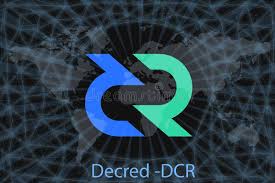Blockchain is a shared, changeless record for documenting transactions, estimating assets, and organizing trust relationships. The public blockchain is public. Even in the White Paper of Bitcoin, the blockchain is mentioned in a public forum. Access to the public blockchain is open to everyone. By contrast, access to the private blockchain is limited. The private blockchain has access control that does not allow anyone to join the network. In private blockchains, the network is controlled by one or more entities who permit to join the network.

A hybrid blockchain can be described as a blockchain that tries to leverage the best aspects of both private and public blockchains. Ideally, a hybrid blockchain would provide controlled access and freedom at the same time. The hybrid blockchain provides peculiarities such as integrity, transparency, and protection. Hybrid blockchain members make decisions about who can participate in the blockchain and which transactions will be public. Even though transactions in the hybrid blockchain are not public, they can be verified if necessary. Every transaction that takes place on the hybrid blockchain can be private and at the same time open for verification, if needed. But immutability plays the most crucial role in the operation of the blockchain: each transaction is recorded once and cannot be changed.
The aforementioned network, in which the private blockchain is linked to the public one, and the transactions of the former are additionally validated by the consensus of the latter, is a hybrid. It simplifies auditing and further increases the level of protection and control over the process for end-users and third parties. This architecture translates to trust in a black box solution from subjective when trust in the system is equal to belief in the organization that controls it. It will be facilitated by the public blockchain and the additional cost of attacking the external part of the system.
When the data itself from the private network cannot be transferred outside it, the hybrid architecture can be used in the “anchoring” mode. Anchoring is a model in which private blockchain operators send hash sums of blocks to be included in a supporting public blockchain in the format of evidence-based transactions.
Why blockchain matters
Business depends on data. Data acquisition speed and accuracy are critical. Blockchain is perfect for presenting such information as it offers approved network participants instant, general, and transparent entrance to information in a permanent ledger. The blockchain network permits you to follow orders, payments, accounts, items, and more. And because all participants share a single source of trusted data, you can view all transaction details at any time to work with greater confidence and gain new benefits and opportunities.
Does hybrid blockchain guarantee security over public or private blockchain?
Yes. Because even the group of persons that controls it cannot change the very feature of the blockchain – immutability, and thus cannot undermine the security of the transactions themselves. Blockchain members can only decide which transactions are public and which are not.
Once the user gains access to the hybrid blockchain, they can fully participate in the activities of the blockchain itself. However, the identity of users is kept secret from other members. It is done to protect the privacy of the users themselves.
The identities of users are unveiled only when they interact with each other and only to them, the interacting parties. To ensure that the above identification process is carried out correctly, companies and organizations use the KYC (Know Your Customer) check. Financial institutions must use KYC because transactions must be performed by a user who is fully known to the blockchain.
However, even though the identity of hybrid blockchain users has limited anonymity within the network (revealed when interacting with other users), outside the network, the complete anonymity of hybrid blockchain users remains.
The hybrid blockchain network provides all the functions of the public blockchain, such as security, transparency, immutability, and decentralization. But at the same time limits the ability to freely access transactions.
Benefits of a hybrid blockchain
- Working in a closed ecosystem
The advantage of a hybrid blockchain is its ability to operate in an ecosystem. It means that companies or organizations do not need to worry about information leaks.
- 51% Attack Protection
A hybrid blockchain is immune to 51% of attacks because hackers cannot access the network to carry out an attack.
- Protecting privacy while interacting with the outside world
While private blockchains are best suited for privacy-related matters, they are limited when it comes to interacting with the outside world. Therefore, many companies operating on a private blockchain also need to have a blockchain to communicate with all their shareholders and the public.
- Low transaction costs
Another added benefit of using a hybrid blockchain is the low transaction costs. Transactions should be cheap as only a few nodes are required to validate them. Only the most influential nodes are involved in verifying transactions in a hybrid blockchain network; in a public blockchain, this may require thousands of nodes.









